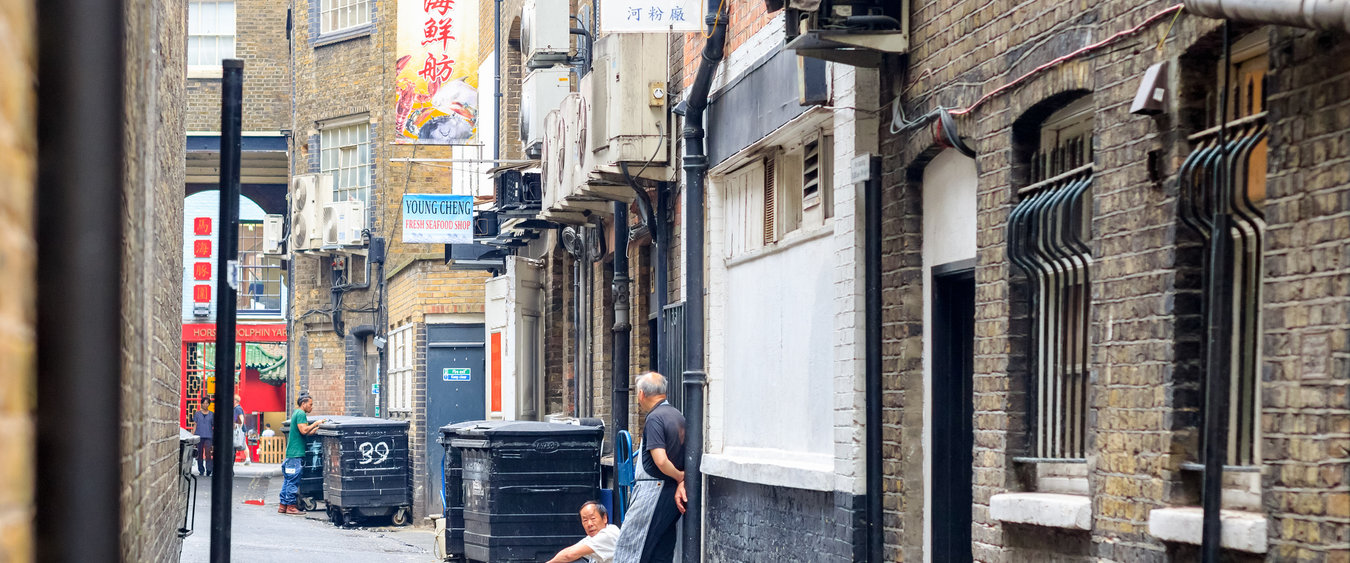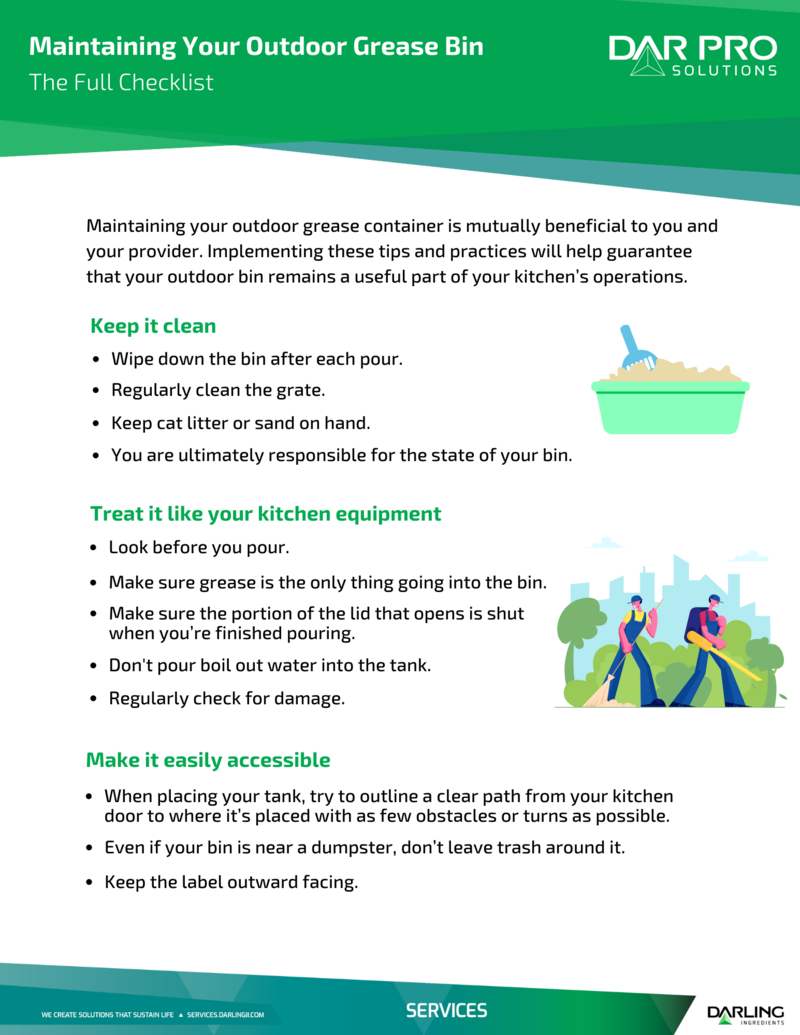Keep it clean
The easiest way for your outdoor bin to become an eye sore is allowing the bin and the area surrounding it to become dirty.
Wipe down the bin after each pour. Manually transferring hot oil into an outdoor bin isn’t always the easiest task. Grease can spill and run down the side of the container and onto the ground. Make it a habit to wipe down the bin and clean the surrounding area after each pour. This preventative wipe down method is preferable to pressure washing because the excess oil will eventually end up in the drainage system. Your restaurant will look better because of it.
Regularly clean the grate. The bin’s opening is protected by a metal grate designed to prevent large debris from entering the container. Grease hardens when it cools and can clog the grate’s holes. A great way to prevent this making a habit to clean it after each pour. Using a scraper around is a good idea, but grease residue building up is sometimes inevitable. Keeping a broomstick around to unclog holes is a useful trick to ensuring a safe and efficient pour.
Keep cat litter or sand on hand. Even when carefully pouring the grease in, spills are going to happen. Only a portion of it is capable of being opened by your employee because of its weight. This means their target is somewhat small. Grease spreads quickly and can become both a mess and a safety hazard. When spills do happen, clean them immediately. Applying cat litter or sand to soak up the grease is a great way to prevent it from spreading.
You are ultimately responsible for the state of your bin.
Implementing these practices and keeping the bin and the surrounding corral neat and tidy is the easiest way to avoid a mess.
Treat it like your kitchen equipment
Much like your grill, fryer, oven or other kitchen equipment, there’s a right and wrong way to use your grease bin. Here’s how to properly handle it.
- Look before you pour. The best way to prevent a spill is to pour carefully and look before and while you pour. Make sure your bin isn’t already full and that there’s enough room to pour your current batch. If your grate is clogged, that pot you’re transferring could quickly turn into an overflow. Make sure the lid is open and the opening is clear.
- Make sure grease is the only thing going into the bin. Your grate will help to some degree, but food particles and other debris can find their way in too if you’re not careful. Though your bin might rest next to your trash receptacle, it is picked up far less frequently. If food waste builds up inside the container, it will eventually create an unpleasant odor your guests might smell and can also attract pests. You should make sure your kitchen staff knows to never throw trash into your bin.
- Make sure the portion of the lid that opens is shut when you’re finished pouring. As simplistic as it sounds, leaving the lid open can lead to excess water entering the storage bin, diluting the oil and potentially leading to an overflow. Even if your provider automates your pickup schedule, they’re likely not accounting for excess water taking up additional volume. Shut the lid to avoid an overflow.
- Don't pour boil out water into the tank. Be careful when boiling out your fryer. The chemicals used in the process can contaminate the oil and the excess water from the boil out could lead to an overflow.
- Regularly check for damage. Grease theft is more prevalent than you think. In fact, up to $75 million worth of used cooking oil is stolen every year. Make sure your oil isn’t becoming the target of thieves. Examine the bin for potential damage, particularly in the morning as grease thieves love to work in the darkness of the night. A damaged bin can also lead to leaks and spills and regular inspection is always helpful.
Make it easily accessible
What good is your storage tank if it’s a pain to access? Let’s go through some tips to ensure both your staff and your provider can efficiently get to your tank.
- When placing your tank, try to outline a clear path from your kitchen door to where it’s placed with as few obstacles or turns as possible. Hot oil is a hazard and navigating around other obstacles only makes the transfer more difficult. It will also make things easier on your service provider and lead to more efficient pickup.
- Even if your bin is near a dumpster, don’t leave trash around it. That only makes life harder on your employees as they try to safely pour the oil into the bin.
- Keep the label outward facing. Your bin will be marked. Make sure that label remains visible to deter customers or other by-passers from throwing garbage inside it.
Maintaining your outdoor grease container is mutually beneficial to you and your provider. More often than not, a problem you have with your grease bin will eventually become one for your provider as well and could affect the efficiency of your service. Implementing these tips and practices will help guarantee that your outdoor bin remains a useful part of your kitchen’s operations.
DAR PRO Solutions’ used cooking oil recycling is the best fit for servicing your outdoor bin. Reach out to a DAR PRO representative today and find out how your business can benefit from our comprehensive program. Call us 24/7/365 at 855-DAR-PRO1 (855-327-7761).
6/11/2021

